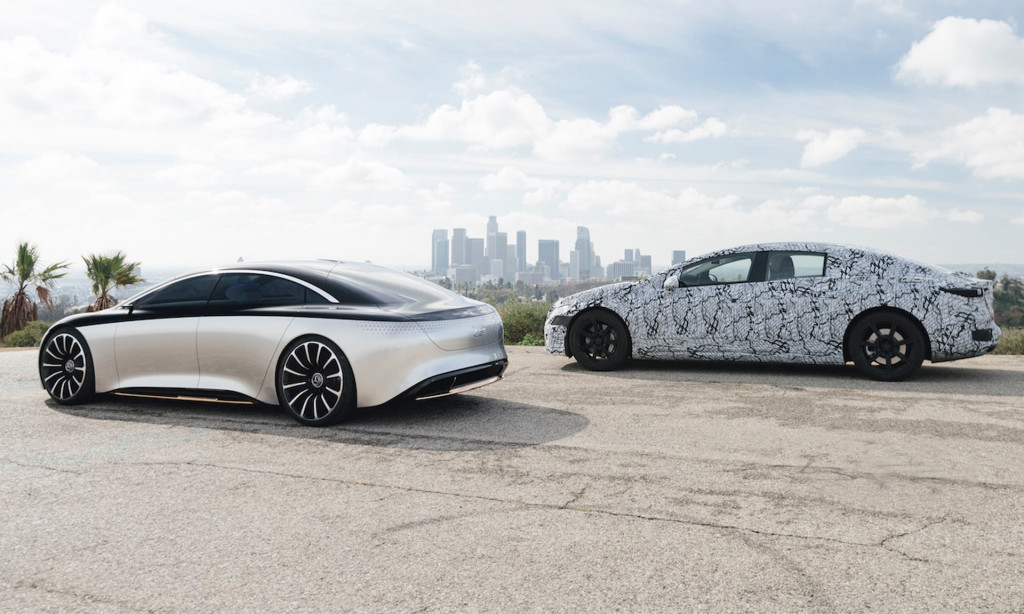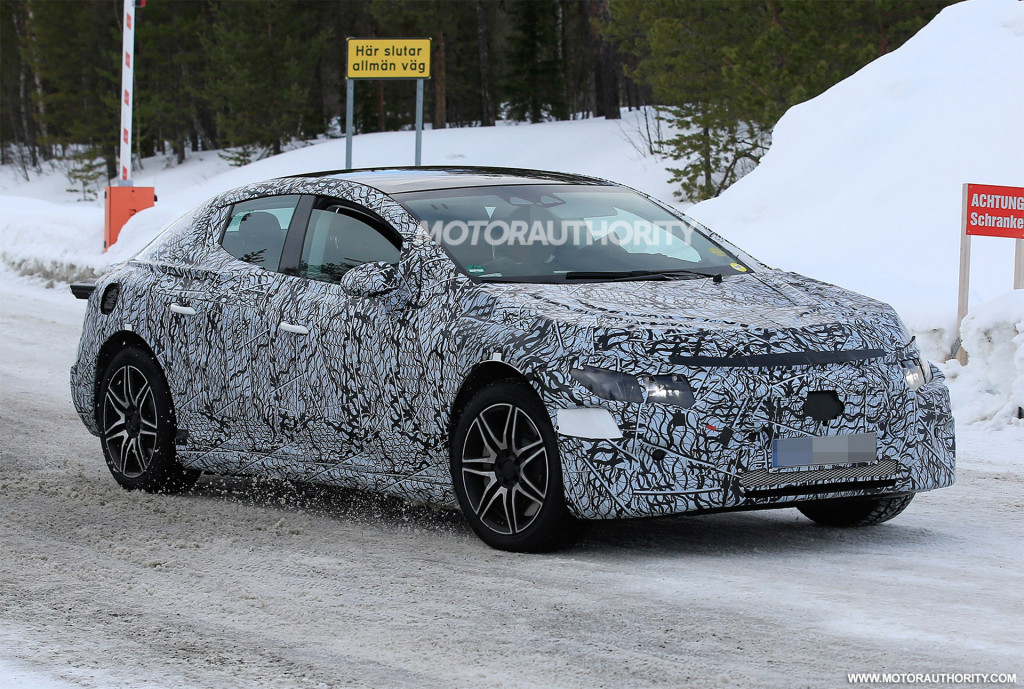At a virtual investor meeting held Tuesday, Mercedes-Benz outlined a strategy to strengthen its luxury image and boost margins by introducing more models at the top end, many of them powered by battery-electric powertrains.
Mercedes is already launching new EVs under its EQ sub-brand, the first of which was the EQC small SUV. However, the automaker's next step will be to add EVs to its Mercedes-AMG, Maybach and G-Class sub-brands. Apparently G-Class is its own sub-brand now.

2022 Mercedes-Benz EQE SUV spy shots - Photo credit: S. Baldauf/SB-Medien
These high-end models will all utilize Mercedes' EVA dedicated EV platform debuting in 2021 in the EQS large sedan and potentially delivering over 400 miles of range on a charge. Following the EQS will be a mid-size EQE sedan and then a pair of SUVs positioned alongside the EQS and EQE. The EQS SUV has already been spotted. Some of these models will spawn AMG and Maybach variants, and an electric G-Class is also coming.
For future compact and small vehicles, Mercedes will develop a second dedicated EV platform dubbed MMA. The first MMA-based vehicles will arrive from 2025. For upcoming compact EVs like the EQA and EQB, Mercedes is relying on an electrified version of a platform originally developed for internal-combustion engines.

2022 Mercedes-Benz EQS prototype and Vision EQS concept
So that it doesn't fall behind in battery development, Mercedes has established an in-house team, as well as strategic partners that include CATL, Farasis and Sila Nano. The automaker is looking to rely on new materials and production processes for batteries to increase their range, while reducing charging time and costs.
Mercedes is also tapping its Formula One team to help develop electric motors and energy recovery systems for its future EVs.

2022 Mercedes-Benz EQE spy shots - Photo credit: S. Baldauf/SB-Medien
All of this know-how will be demonstrated in a highly efficient vehicle with “spectacular” range code-named the Vision EQXX. Although it isn't destined for production, technology developed for the Vision EQXX is expected to transfer to Mercedes' production vehicles quickly.
Unfortunately for fans with gasoline still in their veins, Mercedes plans to curtail investments in internal-combustion engines dramatically. The automaker expects the number of combustion engines on offer by 2030 to be 70% lower than today's levels. The automaker has also confirmed it will soon no longer offer manual transmissions, though this has already been the case for the U.S. market for some years.
